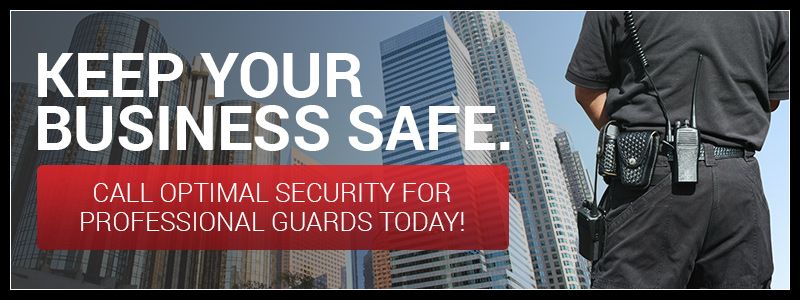The term “emergency management” entails a really broad landscape. In fact, one can only make sense of it in a particular setting only. For instance, emergency management for a retail store will be different from that of a school. Similarly, a hospital will have a different emergency plan than a bank.
Nonetheless, some elements and characters are recurring in every emergency management plan, regardless of the type of setting it is going to be implemented. Case in point: a security guard, which is a part of the security plan of every establishment, also has an integral role to play in devising and executing an emergency management plan.
In this blog post, we will discuss the five major phases of any emergency management plan but from the standpoint of security and by factoring in the role of security personnel.
1) PREVENTION
The first and foremost objective of any emergency management plan is the prevention of emergency itself for one simple reason: if an emergency is averted, you won’t need any management plan at all. It sounds like a paradox but security guard play quite an integral role here.
Let’s try to understand this phase and the role a security guard can play in it with the help of an example.
For a bank, emergency prevention aims to ensure that the establishment doesn’t experience a hostage situation or bear the brunt of a robbery. Such instances entail potential risk to both human life and valuables. So, how do banks try to ‘prevent’ such situations from happening?
- They install a surveillance system and use modern technology for safekeeping of the tangible assets
- They direct their staffer to not confront robbers to ‘prevent’ any risk to human lives
- They employ security guards to use their presence as the ‘preventive’ measure against those malevolent individuals who are planning something ominous
The third point clearly indicates that security guards play a vital role in the prevention phase of the emergency management of a bank or any similar financial institute. There are many real-life examples where the presence of security guards has successfully prevented the cascade of emergency measures from setting off.
2) PREPAREDNESS
Prevention of emergency is strongly linked to preparedness. There is no way an organization can prevent an emergency if it is not prepared for it. In organizational settings, it is an ongoing cycle of planning, training, organizing, assessing and equipping the people who have any role to play in the prevention of emergency.
For instance, an IT firm constantly carries out drills for their employees through mock cyber attacks to take care of all the aforementioned elements. Similarly, any physical establishment existing in the public domain arranges security drills and evacuation rehearsals to hone their preparedness against any natural disaster or man-inflicted trouble. In such drills, security guards don’t just ensure themselves and the organization about their capability and competency but they also show others how to prepare for averting an emergency or to deal with it.
Even if other employees are not prepared for any unforeseen incident, it is a must for a professional security guard to have optimal readiness in the face of any incident or emergency entailing all types of hazards.
Here, the training and courses they have completed during the time of license acquisition come in really handy. In other words, security training centers play an important role in vetting the personnel’s skills and preparedness for preventing or dealing with an emergency at all times.
3) RESPONSE
Many incidents can’t be stopped at the initial barricade— a failure of preventative methods. Nonetheless, they can still be averted by devising a befitting response. This is the reason why it is the third and probably the most critical phase of an emergency management plan.
Security guards are at the helm of the response phase in any emergency management plan. Whether it’s a school facing an active shooter situation or a bank undergoing an armed robbery, security guards devise the first line of response. Concealed weapon classes train security guards to pose armed resistance and response in any such situation.
It is well documented that an instant, befitting response by security guards has helped establishments in averting full-blown emergencies. And that’s what the purpose of a response phase is i.e. to avert a full-scale emergency.

